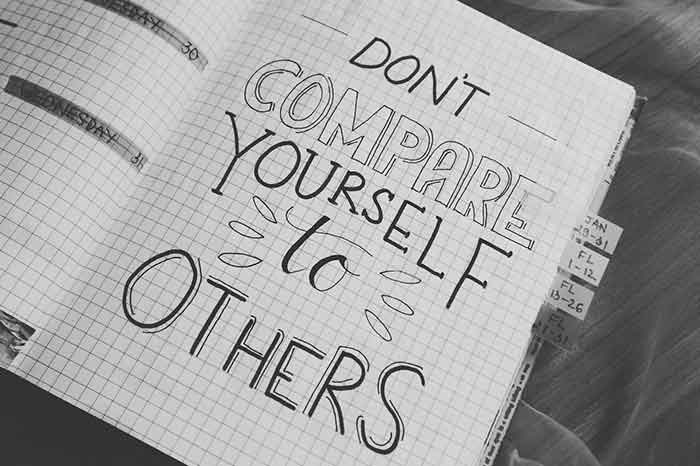Almost every one of us has felt like an imposter in one setting or another at some point in our lives. You know that feeling when someone praises you or describes you in a specific (always positive) way and you go internally “What? Who? Me? Are you talking about me? (LOL)”. Yeah, that feeling is more than just some random negative talk. It can be imposter syndrome, especially if you’re always unwilling to own up to your achievements and feel like a fraud.
What is Imposter Syndrome?

There’s no one imposter syndrome definition. It is what it sounds like – a psychological phenomenon where you feel like an imposter and have an immense fear of being found out as a phony. This feeling exists regardless of how much success and expertise you’ve achieved. In fact, it won’t be wrong to say that it exists because of it.
People suffering from the imposter phenomenon have enormous self-doubt over their skills, talents, and accomplishments. It is more than role strain, where you face difficulties in fulfilling the duties of a new role.
Individuals with this syndrome have all the required skill sets and expertise to excel in a role, yet they deem themselves unworthy and incompetent. For example, it could be a student playing down their high grades or feeling doubt when professors praise them for their work. Similarly, it could be a businessman or a woman feeling like luck was responsible for their success rather than their own hard work.
According to a review on imposter syndrome, 82% of individuals reported experiencing feeling like an imposter at some point in their lives. It was first reported to be common in high-achieving women but later researches show that it can affect anyone regardless of gender or age. Although, it is slightly more prevalent in women and women of color.
Types of Imposter Phenomenon
To understand it better, there are several kinds of imposters. Some of them are described below.
- The Perfectionist – believes that everything has to be perfect. If, even, one thing is amiss; they deem it as a failure of themselves.
- The Natural Genius – they believe themselves a fraud if they don’t get everything right on the first try.
- The Expert – if they’re unable to answer even one small thing in their particular field, they think of themselves as a fraud.
- The Soloist – these people dread asking for help and insist on doing everything themselves; not doing so would expose them as phony.
- The Superhuman – they believe that they should succeed at everything they do, all at the same time even.
You can see just by reading these descriptions that all these expectations are unrealistic and no number of productivity hacks will enable you to be perfect and do everything perfectly. So, why these feelings of incompetence and self-doubt?
What Are the Causes behind it?
Feelings of being an imposter usually arise from childhood trauma. Children who grew up being pressured to do well in school or who got compared to their siblings and peers are more at risk. Additionally, gifted children who received excessive praise and reinforcement for their talent grow up to be burnt out and feel like utter frauds.
In contrast, not all self-doubt is imposter syndrome. According to Harvard Business Review, a lot of women in high positions get bullied and discriminated against by their co-workers out of jealousy, which leads them to begin doubting their abilities.
Signs and Symptoms that you’re Suffering from Imposter Syndrome
You can recognize the imposter phenomenon from the following signs:
- Inability to objectively see your skills and competence
- Crediting good luck or other external factors for your success
- Being extremely self-critical
- Not being able to take compliments and praises
- Fear of being found out or exposed for your supposed shortcomings
- Self-doubt
- Feeling guilty for fooling or tricking others
Suffering from this phenomenon is not entirely harmless or simply a matter of personality. It can have numerous negative effects on your health that include but are not limited to the following:
- Anxiety attacks
- Generalized anxiety disorder
- Social anxiety
- Stress
- Panic attacks
- Persistent feelings of fear, guilt, and shame
- Low self-worth and self-esteem
- Low levels of confidence
- Burnout due to overwork and constantly chasing perfection
- Self-sabotage
5 Ways to Deal with Feelings of Being an Imposter
It is not all hopeless. There are ways you can deal with and overcome this feeling of being an imposter and gain back your confidence in yourself. Beware of the many imposter syndrome myths out there to not confuse yourself during this process.
1. Take a Pause – Practise Mindfulness

The very first step to take whenever negative thoughts attack you is to take a deep breath and pause. In my experience, doing a quick 10-minute breath workout is extremely helpful in clearing your head and bringing you back to the present. Practice mindfulness and take a look at your surroundings and realize that you are safe and nothing is threatening you.
2. Watch your Thoughts

Your thoughts have immense power over you. If you don’t control them, they will control you. Undoubtedly, the easiest way to destress your life is to meditate and bring your thoughts under control.
Don’t worry, it is not as difficult as it seems. Simply, start observing your thoughts. Instead of feeling like a failure or a fraud, watch your thoughts from the outside. You’ll find that you’re being unkind to yourself and that alone will prompt you to be compassionate and treat yourself with kindness. Acknowledge your thoughts and feelings. But do not give in to them.
3. Share – Build a Meaningful Support System

If your voice is not enough to calm your demons, get help from loved ones. Hearing an objective opinion of yourself can bring to attention all the ways you excel at. Moreover, if this reaffirmation comes from a loved one, it will feel more real and more comforting because they only want the best for you. Likewise, sharing your troubles lightens the burden. Truly, the importance of having meaningful relations for coping with psychological issues cannot be neglected.
4. Don’t Compare Yourself with Others

This is one of the most damaging things for people of all ages, at all levels. It chips away at your confidence if you’re constantly comparing yourself with others. Everyone is different, each with their own struggles. Just because they’re doing better than you in one aspect doesn’t mean they aren’t struggling in others. Do not undervalue your achievements and your success because of others. Especially avoid social media, the breeding ground for comparison and envy.
5. Turn Fear into Gratitude

Instead, make a gratitude journal. And listing down all the good things in your life and all your accomplishments that you are grateful for. It is the secret to being satisfied and living a happy life.
Conclusion:
Imposter syndrome is a common phenomenon. You’re definitely not alone in this and it’s completely possible to overcome it. You just need to be kind to yourself; objectively evaluate your accomplishments and change your mindset.
Sharing your struggles with other people will not only make you feel less alone but you can also inspire other people to come out of their challenges too. And never forget, there’s professional help like online therapy available just a click away.
Read Also: How to Change Your Life





